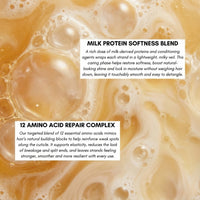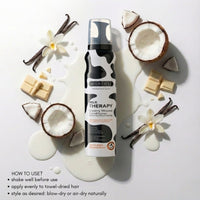The Role of Oils in Professional Hair Care: Choosing the Right One
Posted by MORFOSE COSMETICS

The Role of Oils in Professional Hair Care: Choosing the Right One
In the world of professional hair care, oils play a crucial role in nourishing and enhancing the health of your hair. With a wide range of options available, choosing the right oil for your specific needs can make a significant difference in achieving the desired results. In this article, we will explore the various types of oils used in professional hair care and provide insights on selecting the perfect oil for your hair.
Understanding the Benefits of Hair Oils
Hair oils have been used for centuries to promote hair health, strength, and beauty. These oils are rich in essential nutrients, vitamins, and fatty acids that provide deep nourishment to the hair follicles, resulting in stronger, shinier, and more manageable hair. Additionally, hair oils help to moisturize and protect the hair from external damage caused by heat styling, pollution, and harsh chemicals.
Exploring Different Types of Hair Oils
1. Argan Oil
Argan oil, often referred to as "liquid gold," is extracted from the kernels of the Moroccan argan tree. It is rich in antioxidants, vitamin E, and fatty acids, making it an excellent choice for moisturizing dry and damaged hair. Argan oil is lightweight and easily absorbed, leaving no greasy residue. It helps to tame frizz, reduce split ends, and enhance the overall texture and shine of the hair.
2. Coconut Oil
Coconut oil is a versatile oil widely used in hair care routines. It has natural antibacterial and antifungal properties, which can help combat scalp issues such as dandruff and fungal infections. Coconut oil penetrates deep into the hair shaft, preventing protein loss and providing a protective barrier against environmental damage. It is particularly beneficial for those with thick, coarse, or dry hair.
3. Jojoba Oil
Jojoba oil closely resembles the natural sebum produced by our scalp, making it an ideal choice for regulating oil production and promoting a balanced scalp. It is packed with vitamins, minerals, and fatty acids that nourish the hair follicles and improve hair strength and elasticity. Jojoba oil also adds shine to the hair without weighing it down, making it suitable for all hair types.
4. Olive Oil
Olive oil has long been used as a natural conditioner and moisturizer for hair. It is rich in antioxidants and vitamin E, which help repair damaged hair, reduce hair breakage, and improve scalp health. Olive oil deeply penetrates the hair shaft, providing intense hydration and leaving the hair soft, smooth, and more manageable. It is especially beneficial for individuals with dry, frizzy, or chemically treated hair.
5. Castor Oil
Castor oil is renowned for its hair growth-promoting properties. It contains ricinoleic acid, which helps stimulate blood circulation to the scalp and nourish the hair follicles, promoting healthy hair growth. Castor oil also has humectant properties, attracting and retaining moisture in the hair, preventing dryness and breakage. It is suitable for all hair types and particularly beneficial for individuals experiencing hair thinning or hair loss.
Choosing the Right Oil for Your Hair
When selecting a hair oil, it is essential to consider your specific hair type, concerns, and desired results. Here are some key factors to keep in mind:
-
Hair Type: Determine whether your hair is dry, oily, normal, or a combination. Each hair type requires different levels of moisture and nourishment.
-
Hair Concerns: Identify any specific hair concerns you may have, such as frizz, split ends, hair loss, or scalp issues. Different oils address these concerns differently.
-
Absorption Rate: Consider the absorption rate of the oil. Lighter oils like argan and jojoba are quickly absorbed and leave no residue, while heavier oils like olive and coconut may require more time to penetrate the hair shaft.
-
Fragrance Preference: Some oils have a distinct aroma, so choose an oil with a fragrance you enjoy or opt for fragrance-free options if you are sensitive to scents.
-
Quality and Purity: Ensure that the oil you choose is of high quality and free from additives or synthetic ingredients. Cold-pressed or organic oils are generally preferred.
Remember, a little goes a long way with hair oils. Start with a small amount, gradually increasing if needed, to prevent your hair from becoming weighed down or greasy.
Conclusion
In the realm of professional hair care, choosing the right oil can be a game-changer for achieving healthy, lustrous hair. Whether you opt for argan oil, coconut oil, jojoba oil, olive oil, castor oil, or any other type of oil, understanding your hair's needs and using the right oil consistently will lead to remarkable results. Experiment with different oils and find the perfect one that nourishes, protects, and enhances the natural beauty of your hair.
Remember, the key to success in professional hair care is not only about choosing the right products but also maintaining a regular hair care routine and embracing a holistic approach to overall hair health.
So, why wait? Start incorporating the goodness of hair oils into your daily hair care regimen and witness the transformation they bring to your locks.



